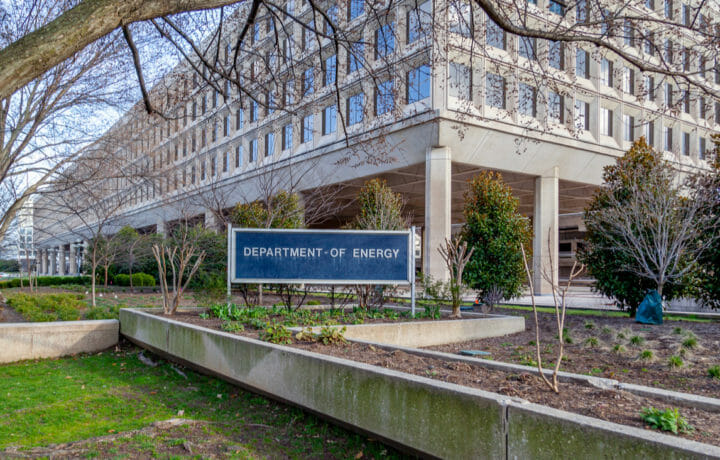For the Department of Energy this week the news headlines were – big. From a fusion breakthrough to the firing of notoriously nonbinary official (and alleged luggage thief) Sam Brinton, to the decision to reverse the revocation of the (long dead) father of the atomic bomb Robert Oppenheimer, the Department of Energy had a big energy kind of week.
1. Fusion Energy Experiment
For the first time, researchers at the Lawrence Livermore National Laboratory were able to produce a nuclear energy reaction resulting in energy gain – it’s a major move for both clean energy and nuclear weapons advancements. The National Nuclear Security Agency (NNSA) played a key role in funding the development. Fusion ignition will help NNSA maintain its nuclear stockpile – the data obtained by the fusion test will help scientists and engineers ascertain the shelf life of the aging warheads in the U.S. nuclear arsenal. The last U.S. nuclear test occurred in September of 1992. Russia and North Korea have not been as hesitant to check their nuclear stockpiles. Fortunately, fusion technology can help facilitate nuclear weapons research – without exploding a stockpile of weapons.
“The pursuit of fusion ignition in the laboratory is one of the most significant scientific challenges ever tackled by humanity, and achieving it is a triumph of science, engineering, and most of all, people,” LLNL Director Dr. Kim Budil said. “Crossing this threshold is the vision that has driven 60 years of dedicated pursuit—a continual process of learning, building, expanding knowledge and capability, and then finding ways to overcome the new challenges that emerged. These are the problems that the U.S. national laboratories were created to solve.”
2. Oppenheimer Gets His Clearance Reinstated
Speaking of bombs, in another DoE announcement this week, the White House reversed the security clearance revocation of Robert Oppenheimer, the physicist referred to as the father of the atomic bomb. It’s nearly 70 years after Oppenheimer’s clearance was revoked, following a four-week closed door hearing in 1954 that critics say was motivated by political motivations to stifle Oppenheimer’s ability to comment on nuclear policy.
The move may be an attempt to remind individuals the clearance process shouldn’t be politicized – or it could be a move to try to right wrongs before the Hollywood release of a movie about Oppenheimer.
3. Someone Loses their Luggage, Sam Brinton Loses His Job (and Clearance?)
Speaking of politics and the clearance process, Sam Brinton, former deputy assistant secretary for spent fuel and waste disposition in the Department of Energy’s Office of Nuclear Energy came under scrutiny after facing a second charge for stealing luggage from an airport (no, he’s not the only security clearance holder with this problem). Critics questioned why Brinton was able to maintain his clearance and position following an incident in September where Brinton was accused of taking luggage that wasn’t theirs. In December, Brinton again faced grand larceny charges for another luggage incident.
What – if any- security clearance repercussions Brinton faced or faces unclear – the Department of Energy doesn’t comment on personnel matters – but my guess is Brinton could face a complicated path back into government service if they decide to pursue big energy jobs in the future.




